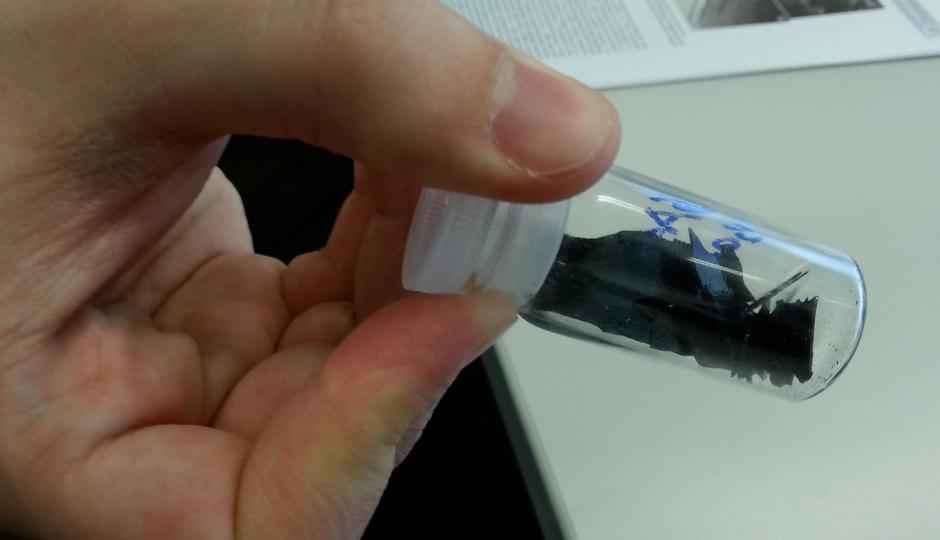Here’s a new glass that can double your smartphone’s battery life
New material could potentially double the battery life of lithium-ion batteries.

Scientists in Switzerland have developed a new type of glass material that could be used as an electrode in lithium-ion batteries to considerably increase a smartphone’s battery life.
 Survey
SurveyETH Zurich researchers led by Dr Semih Afyon and Reinhard Nesper have discovered the material. The researchers are using the Vanadate-borate glass as a cathode material, made of vanadium oxide (V2O5) and lithium-borate (LiBO2) precursors, and coated with reduced graphite oxide (RGO) to enhance the electrode properties of the material.
Afyon and his colleagues blended powdered vanadium pentoxide with borate compounds to produce the cathode material. The powder can be melted at 900 degrees Celsius and cooled quickly to form glass, which is then crushed into a powder to increases its surface area and create pore space.
“Borate is a glass former; that’s why the borate compounds were used, and the resulting glass compound is a new kind of material, neither V2O5 nor LiBO2 at the end,” the researchers said.
“One major advantage of vanadate-borate glass is that it is simple and inexpensive to manufacture,” said Afyon. This is expected to increase the chance of finding an industrial application.
The researchers coated the vanadate-borate powder with reduced graphite oxide (RGO). The resultant battery with an RGO-coated vanadate-borate glass electrode exhibited an energy density of around 1000 watt-hours per kilogramme.
“This would be enough energy to power a mobile phone between 1.5 and two times longer than today’s lithium-ion batteries,” Afyon said.
The technology has numerous uses and could be used to make better batteries for electric cars, boats and bikes. Another purpose that vanadate-borate glass could potentially be used for is wind farms and solar power plants that need to store generated electricity effectively for when it's required. The scientists have already applied for patents to enable the research to continue further, but it will take almost 10-20 years before the technology actually appears in a device.
The research was published in the Scientific Reports journal.
Read: Researchers develop ultra-fast charging battery that can last 20 years
Read: Researchers develop battery for wearable devices that could last 10 years
Source: ETH Zurich
Silky Malhotra
Silky Malhotra loves learning about new technology, gadgets, and more. When she isn’t writing, she is usually found reading, watching Netflix, gardening, travelling, or trying out new cuisines. View Full Profile